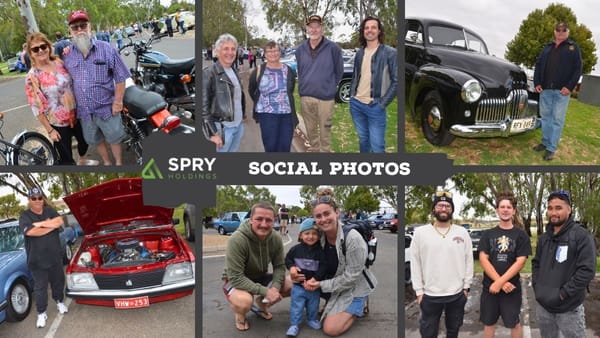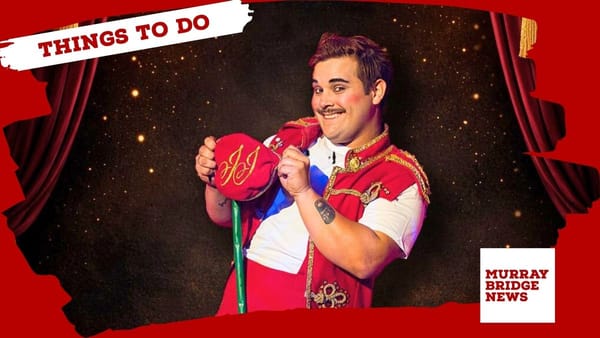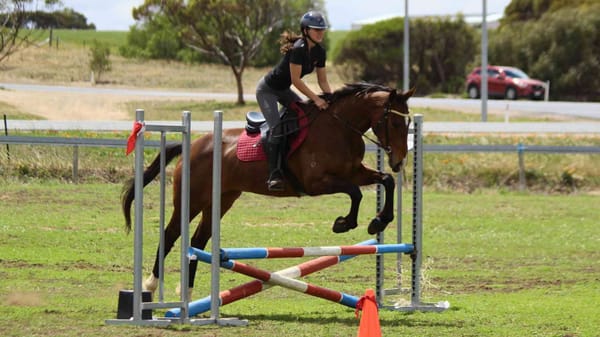HIPPY program shows early childhood activities have a life-long impact
A program delivered through AC Care in Murray Bridge is helping disadvantaged children and their parents in learning, work and life.

This story was originally published behind Murray Bridge News’ paywall. Paywalled stories are unlocked four weeks after publication. Can’t wait that long? Subscribe here.

Parenting is one of the most important jobs we will ever hold during our lifetimes, yet most of us never really train for it.
A free program underway in Murray Bridge is looking to change that.
Bec Hay is one local parent who has taken part in HIPPY: the Home Interaction Program for Parents and Youngsters, for children aged four and five.
“It’s really good for confidence-building, to connect with your kids and get them ready for school,” she said.
By recognising that the home is a place of learning, and that everyday life provides endless opportunities to teach, the program helps disadvantaged children catch up to their peers and sets them up for successful lives.
“It’s little things like when you point out something, adding the colour or how many there are, adding descriptions so that your kids are learning; or pointing things out in stories, not just reading but talking about it afterwards,” Ms Hay said.
Former participant Katisha Jackson, now a regional HIPPY coordinator, also sang the program's praises.
“Being new to parenting, I felt like I did not have the tools or the confidence to be a strong role model with my daughter’s education,” she said.
“(HIPPY) gave me a clear direction on how I could support my daughter.
“It made supporting my daughter quite empowering ... watching her build her confidence while celebrating her successes introduced a great sense of pride and identity for her.”

Participating children catch up with their peers – and then some
On Thursday, two landmark reports on the program were launched at AC Care Murray Bridge by federal MP Tony Pasin.
Seventy-nine per cent of HIPPY children had better-than-average literacy skills after completing the program, researchers had found, up from just 2% beforehand.
Children’s numeracy improved as well – 98% ended up with better-than-average mathematical skills for their age group.
Participating families wound up spending more quality time together, reading and having fun.
Researcher Julie Connolly said the program had been “transformational” for those families.
“It improves the school readiness of participating children precisely because HIPPY believes in the power and the importance of parents,” she said.
“By resourcing parents with some extra skills, a bit of time, a bit of investment, some opportunity, they are the ones who transform the lives of their children.”
She hoped the reports would start a national conversation about how to better support parents and create better home learning environments for children.
Mr Pasin said the federal government had invested $166 million in HIPPY over the past seven years because it had been proven to work.
“We’re talking of a program that encourages a love of learning,” he said.
“It increases the chances of employment, it increases the chances of children doing well at school, it builds self-esteem and confidence, and it improves communication between parents and their children.”
Supporting new parents also helped prevent family breakdowns, neglect, violence, substance abuse and mental illness, he said.

Welfare system must change to better help parents return to work, researchers say
Parents who complete the HIPPY program have the opportunity to become tutors, helping other families and gaining paid experience that will help them get into, or back into, the workforce.
For the tutors – 98 per cent of whom are women, and 40% Indigenous – the chance to have their work formally recognised and financially rewarded is huge.
Two thirds of tutors go on to find other paid work, and more than 90% report feeling more confident and job-ready.
The program worked for tutors precisely because it was voluntary and because it built upon parents’ aspirations for their children, the researchers found.
The key to getting new parents back into the workforce was building up their self-esteem and resilience, the reports suggested – not pushing them into “coercive and highly conditional” employment programs.
“(HIPPY) is an opportunity to transition into further paid employement by undertaking paid employment,” Ms Connolly said.
“It’s not about sitting in a classroom.
“It’s the actual experience of doing the work, of going and doing the home visits, that transforms and motivates tutors.”
How to participate in HIPPY
The Brotherhood of St Laurence has run the HIPPY program in Australia since 1998.
Sixty thousand families have since completed it.
More than 400 tutors currently deliver it in 100 communities around Australia, with a strong focus on immigrant and Indigenous families.
Families typically begin the HIPPY program in February of the year before their child starts school.
Priority is given to families who hold a health care card, who have no income or rely on government payments, who speak a language other than English at home or to single-parent families; and to children who are Indigenous or who do not live with either parent.
- More information: Visit hippyaustralia.bsl.org.au.
- Register to participate: Contact Murray Bridge program coodinator Rina Atkinson on 8531 4944 or at rina.atkinson@accare.org.au.
- Read the reports: Visit www.bsl.org.au.





